17th March 2016 - Project Simulation meeting 1
This exciting day marked the first time meeting of all the UCL iGEM members. We went through introductions of each member and the deadlines of iGEM. We also started to brainstorm some weird and wacky ideas we had.
23rd March 2016 - Project Simulation meeting 2
All team members met up to start to brainstorm ideas. Tactics used to stimulate ideas for our project included talking about certain aspects of synthetic biology that we liked, then creating ideas from those points.
Friday 3rd June, 6.30pm - Meeting with UCL iGEM 2015
All team members were able to gain huge inspiration and insight to iGEM by meeting the 2015 iGEM team. We received downstream transfer of knowledge and lots of tips on how to get started (the do’s and dont’s of iGEM) and inspired whilst brainstorming. We then went to the pub where we had a laid back social session with light brainstorming.
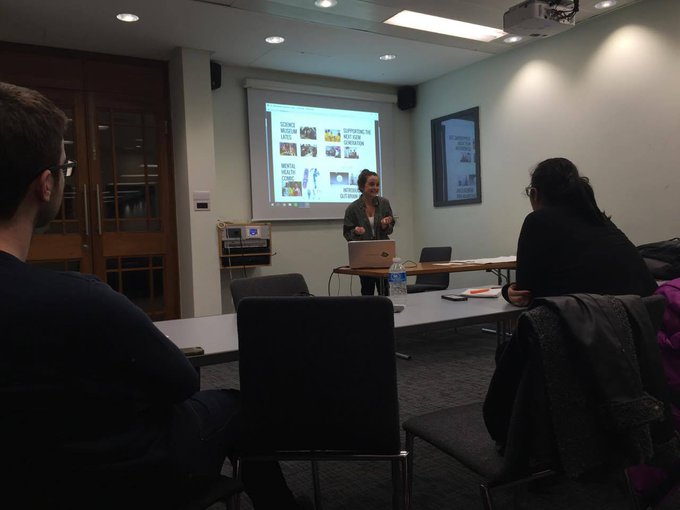
Monday, 6th June, 6.30pm - Meeting with Paris Bettencourt 2014
All team members were present at a meeting with a team member of the 2014 Paris Bettencourt iGEM team. We received a presentation on their project (what it was, how they obtained data/ evidence). We also got insights to what life is like for the team members post iGEM - how iGEM has affected their lives after the competition, which was very inspiring and interesting to know of. Paris Bettencourt team also shared their general motivation to pursue iGEM and their tips (dos and don'ts of iGEM) as well! Because we were so motivated and excited by the talk, we started to actively start to brainstorm, adding to our never ending list of possible ideas (note: weird and wacky ideas still welcome).
Tuesday, 7th June, 6:30pm - Meeting with Imperial 2014 + Brainstorm session
All team members got to have another inspiring talk from a team who nearly won the whole iGEM competition in 2014. We got given a presentation about Imperials iGEM project and Imperial also shared some of their stories of the process, what went well, what didn’t go well and what could’ve been better (hence, what we can think about doing!). All team members had a chance to ask questions to Imperial about their experiences, which will help with our organisation as a team throughout this project! We then had another brainstorming session which was one of the most productive sessions so far! We were able to all pitch our ideas to the post doctoral supervisors who helped with assessing the feasibility of certain ideas and helped come up with new and interesting ideas.
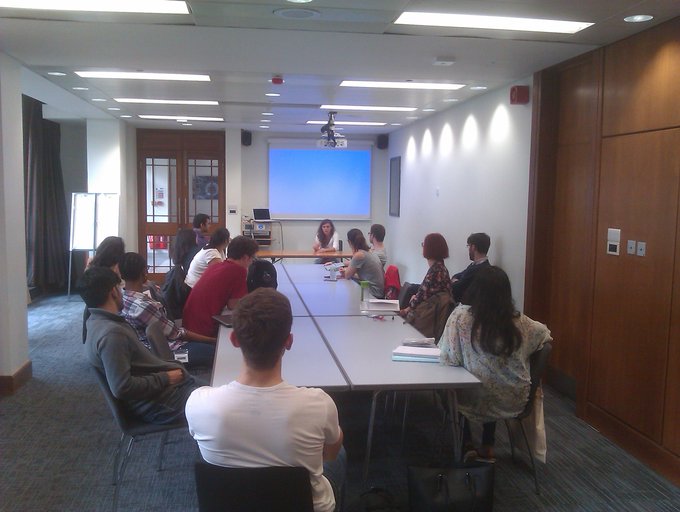
Sunday 12th June 10AM - Team brainstorm meeting
Most team members were present to brainstorm some more ideas we had come up with, to the rest of the team with some pizza added! We also had a final discussion about project ideas before we meet for PROJECT HACK day the following morning. Once we shared some of our ideas, we then discussed in greater depth our ideas we have come up with.
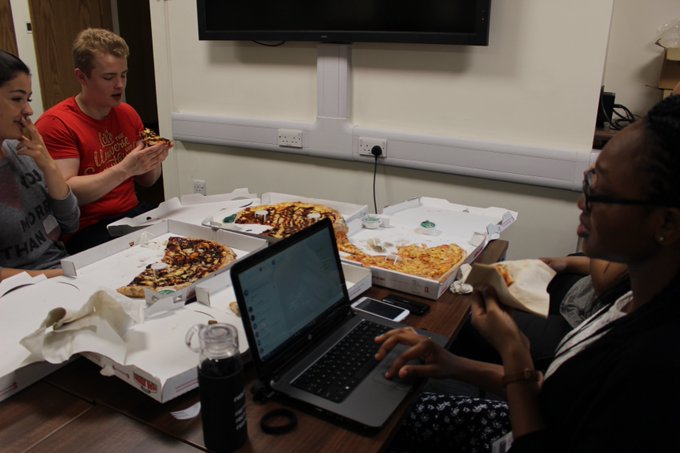
Monday 13th June-Project HACK day 1
All team members and post doctoral supervisors were then present to narrow down to one project idea from all the wonderful ideas we had come up with in the previous brainstorming sessions. It was here, where we decided that ageing was the theme of our project as all team members agreed that it's a promising and exciting area of research that hasn’t been explored by synthetic biology yet! We also collectively came up with a plan of what needed to be done by Thursday. This was to research in depth of some assays, specific enzymes in ageing pathways that we can use synthetic biology to tackle/solve.
Wednesday 15th June - Team research session
Most team members decided to meet to do some further research as a team on possible areas of ageing that we can focus on. Most team members shared some exciting research, ideas and knowledge that they had researched the night before.
Thursday 16th June - Project HACK day 2
After meeting with the team the day before, this was the day that the team members and the post doctoral supervisors met up to map out some experimental plans that would develop from the research we had done before. The team members also started to think about DNA and what parts/biobricks would need to be ordered.
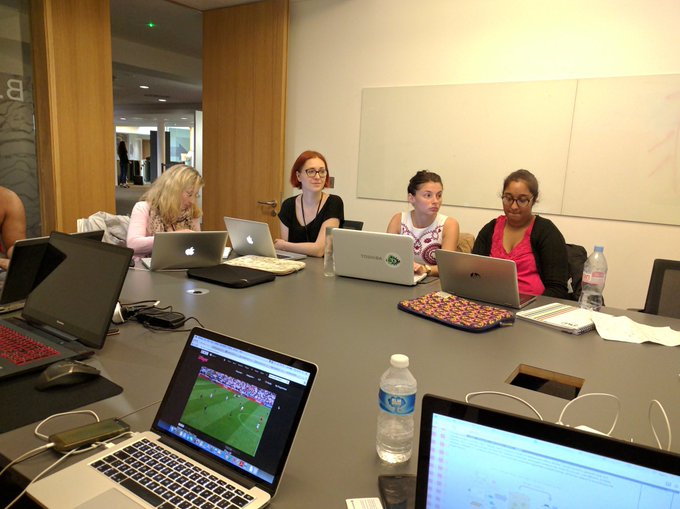
Friday 17th June – 9AM iGEM safety training + group meeting
All team members met up with the safety advisor, to get some safety training which will equipt us with the knowledge to be able to handle an emergency whilst using the labs at UCL. Abbie, Kuba, Dale and Amandeep then met up after the training, to make a plan of what was needed to be done over the weekend by all team members and what we wanted to do next week (meet some internal deadlines). Part of this plan was to look into DNA sequences for assigned parts, start thinking about sponsorship and funding, those members that are not strong with HTML, would start to learn HTML basics and for members to start to think about populating the wiki page.
Monday 20th June (10AM) - Team meeting
All team members met to decide on individual roles- e.g. WIKI-master etc and to update the rest of the team members on how far they got with the items in the plan for the weekend set on Friday 17th June. We found that discoveries within ageing had been a recently developed research (new discoveries). We also sent out a survey which was about public perception of synthetic biology, genetically engineered organisms and our project via twitter, facebook etc. As ageing has a lot of ethical issues associated with it, we wanted to make sure we start to interact with the public and the local community about how synthetic biology can be used for people to live healthier lives for longer.
Tuesday 21st June - Team meeting
We met with the team members to start to finalise some of the biobricks we have found and to start to narrow down exactly what pathways we want to tackle and how we can get some data. We also organised what human practices activities we can run and started to email and talk to some lecturers at UCL who can help with organising workshops for younger children.
Wednesday 22nd June (6.30pm) - Webinar/ skype training with Benchling
All team members had a demonstration/ webinar from the co founder of Benchling. We were able to have a step by step guide of how benchling can be used in our iGEM project. One really useful part of the software we really liked was the lab notebook - where we are able to also convert the notebook to html (useful tool for putting the notes onto our wiki page). The team members asked lots of questions about how to use the software and raised any issues they had before with the software. After the webinar, team members were able to raise any issues they were having with any idea developments to the post doctoral supervisors.
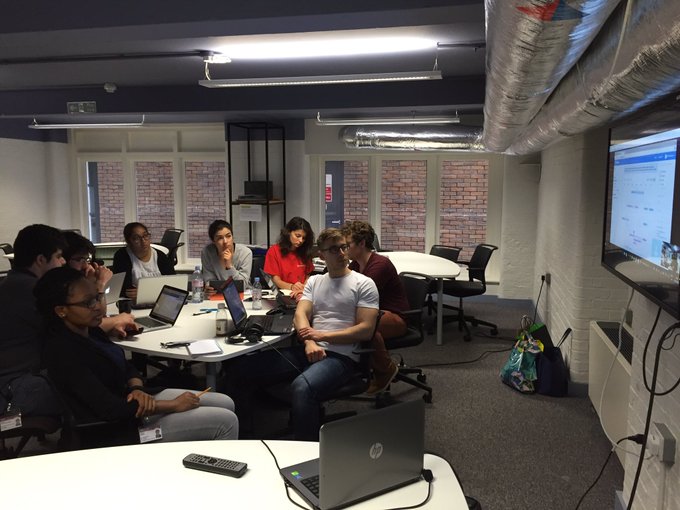
Thursday 23rd June (5pm)- UCL iGEM meets Westminster iGEM
Most team members were able to meet the Westminster iGEM team where we spoke about our projects and possible collaborations between Westminster and UCL iGEM teams.
Friday 24th June - (2-4pm) - Cloning methods / DNA editing training with Dr Vitor Pinheiro
All team members were able to receive a really useful and interesting lecture about the key synthetic biology and molecular biology knowledge needed in order to take part in iGEM (or to understand lab work at least!). We attained knowledge on the biobrick assembly, the different ways to clone and also primer design. After the lecture, we were able to pitch our ideas to Dr Vitor who raised some key issues with some of our ideas and things that we didn’t think about before. We then had a chance to have some further discussions about the project as a team and came to the conclusion that we needed to narrow our ideas down more.
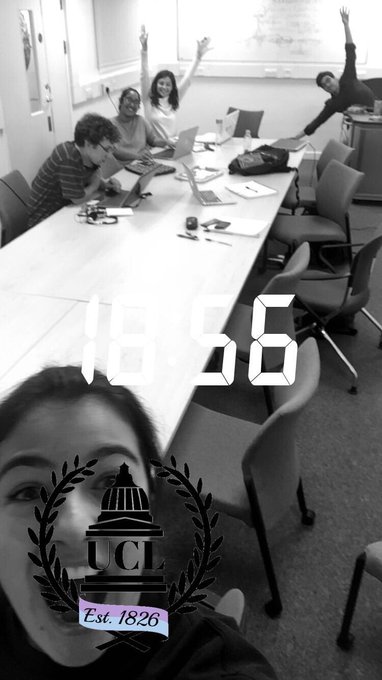
Sunday 26th June (2pm) - Team meeting
All team members met to decide on the aspects within our project that we want to explore in detail (post discussion from the meeting on Friday with Vitor). We also discussed ideas related to funding and sponsorship
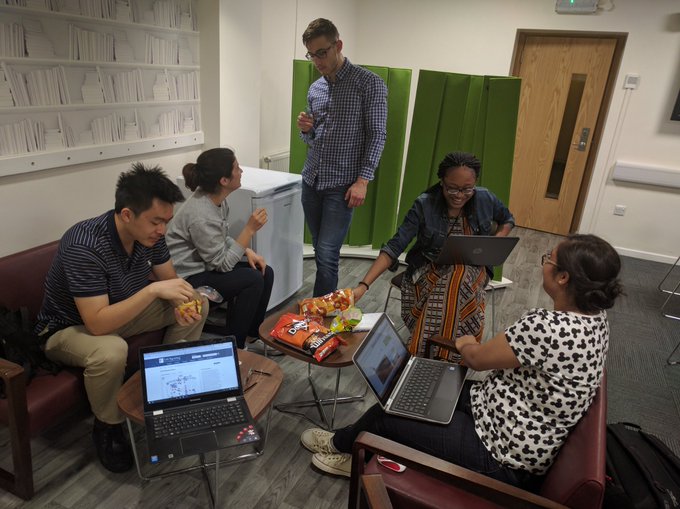
Monday 27th June - Team meeting
Discussed our idea in depth and started to work as a team on the different biobricks we wanted to order. We decided to get every biobrick ready to order by Wednesday. It was a very productive day!
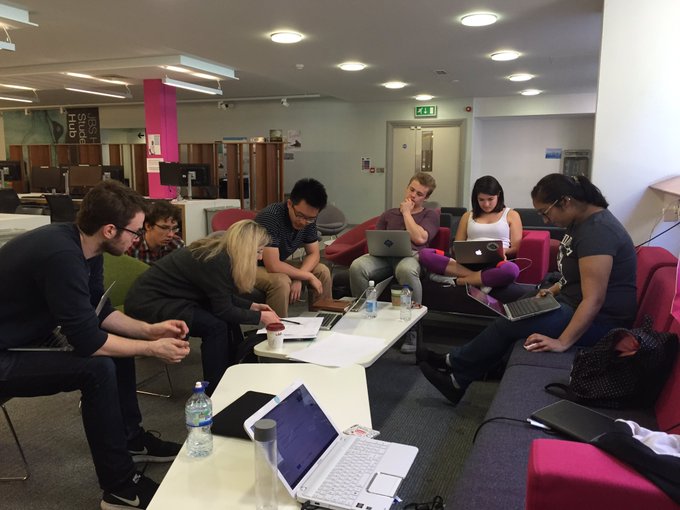
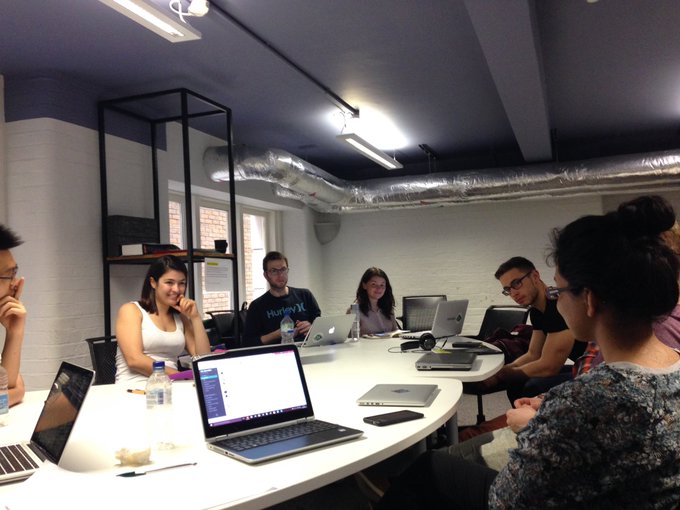
Tuesday 28th June - Meeting with Kim Morgan
Amandeep, Michelle, Abbie and Dale had a chance to meet with Kim Morgan (UCL communications and outreach coordinator at UCL) about possible outreach opportunities. We discussed that we needed to develop an action plan of exactly what we wanted to achieve. Further to this, we found out that we can be featured in an article (Which we were able to get published on the UCL outreach website)! Great kickstart to our human practices! Other team members focused on developing the documentation of each biobrick and also updating our wiki page and contacting people!
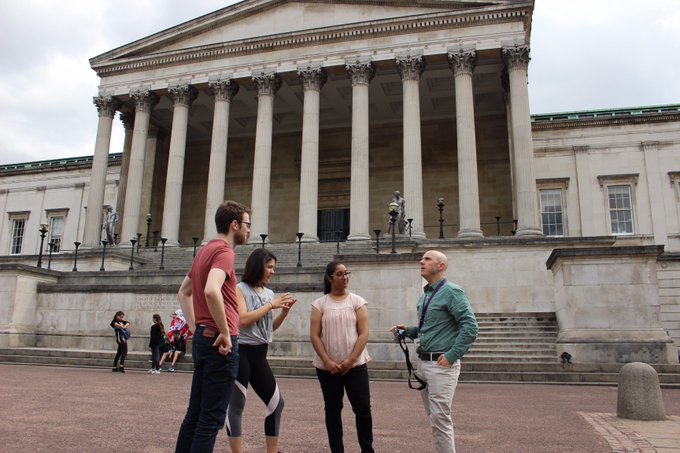
Wednesday 29th June - Team meeting
Team members met up to meet internal deadlines! We finally were able to order some DNA today which was exciting! We also started to build our logo today.
In the evening, we were given a wiki training session from Lewis Moffat, a member of UCL's 2014 team.
Thursday 30th June - Some team members attended the ISMB Symposium
Some team members were able to get a huge insight to what researchers around the world are working on when it comes to senescence. A very interesting talk that stimulated some really interesting thoughts on how we can potentially tackle ageing through senescence. We all had a chance to talk to Maximina after the talk who answered some of our questions about how we could incorporate this interesting research with our project. After the talk, Abbie, Amandeep and Kamil were able to start to work on meeting some deadlines (such as the proposal for the CRISPR grant and safety forms). Amandeep, Chinyere and Neythen were thinking about developing an app and started to do some basic brainstorming of ideas.
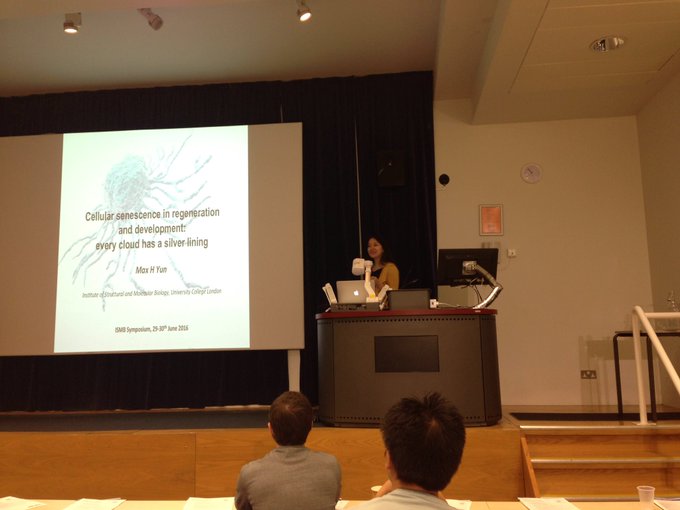
Monday 4th July - Meetings
At 11 A.M., we Skyped the Paris Bettencourt team.
Inspiration
You can see what others teams have done to organize their notes:












